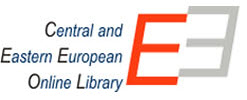Implicit Theories of Teachers About the Importance of Teaching Music
DOI:
https://doi.org/10.23947/2334-8496-2024-12-1-145-156Keywords:
constructivism, implicit theories, music culture education, curriculum, teachersAbstract
Contemporary pedagogical literature emphasizes holistic upbringing and education, with the goal of developing the overall personality of students. In this regard, the aim of this study is to explore and determine how teachers perceive the importance of teaching music. This research was conducted in the second semester of the 2022/2023 school year on with a sample of Republic of Srpska primary school teachers (N=10). Empirical data were collected through semi-structured interviews conducted both online and in person; a protocol with open-ended questions was developed. The data were analyzed using the method of qualitative thematic analysis. The research results show that teachers perceive music education positively and emphasize its importance for the comprehensive development of students. Additionally, teachers believe that certain changes are needed in the music curriculum, although they emphasize that they have freedom in choosing content in all teaching areas. There is a prevailing opinion among teachers which indicates the need for an increased focus of the educational system towards music education in the lower grades of primary school.
Downloads
References
Barry, H. N. (2008). The Role of Integrated Curriculum in Journal of Music Teacher, 18(1), 28–38. MENC: The National Association for Music Education, http://jmte.sagepub.com DOI: https://doi.org/10.1177/1057083708323139
Bašić, E. (1987). Muzikalna potka u likovnom i govornom izražavanja spontanog djeteta. [A musical thread in the visual and verbal expression of a spontaneous child].U D. Nola (ur.): Dijete i kreativnost (pp. 161–207). Zagreb: Globus.
Bergstein Dow, C. (2010). Young Children and Movement: The Power of Creative Dance. Young Children, 65(2), 30–35.
Bjekić, D., Aleksić, V. & Vučetić, M. (2012). Dvodimenzionalni model Blumove taksonomije u nastavi tio. [Two-dimensional model of Bloom’s Taxonomy in the teaching of Technics and Informatics]. U D. Golubović (ur.): Tehnika i informatika u obrazovanju, (pp. 66–75), Tehnički fakultet.
Bogunović, B. (2008). Muzički talenat i uspešnost. [Musical talent and success]. Institut za pedagoška istraživanja.
Čudina-Obradović, M. & Brajković, S. (2009). Integrirano poučavanje. [Integrated teaching]. Pučko otvoreno učilište, Korak po korak.
Ćalić, M. & Grkić, J. (2013). Настава музичке културе и упознавање ученика са садржајима народне традиције у млађим разредима основне школе. [The teaching of music culture and introducing students to the contents of folk traditions in the younger grades of primary school]. Зборник радова, 16(15), 291–304.
Dennison, P. E. (2007). Brain Gym i ja. [Brain Gym and me]. Ostvarenje.
Đurđanović, M. M., Cvetković, S. & Đorđević, M. (2018). Music students’ intercultural sensitivity to different religious convictions. International Journal of Cognitive Research in Science, Engineering and Education / IJCRSEE, 6(3), 59–65. https://doi.org/10.5937/ijcrsee1803059D DOI: https://doi.org/10.5937/ijcrsee1803059D
Đurđev, M. & Lukač, V. (2013). Muzičko vaspitanje: zbirka aktivnosti za rad u pripremnoj grupi: priručnik za vaspitače. [Music education: a collection of activities for work in a preparatory group: handbook for educators]. Stylos art.
Fryberger, A. M. (1916). Listening Lessons in Music, Graded for Schools. Silver, Burdett and Company.
Gajić, S. (1996). Narodna muzika u nastavnim programima predmeta muzička kultura u osnovnoj školi od 1870. do 1995. godine. [Folk music in the music culture subject curriculum in primary schools from 1870 to 1995]. Nastava i vaspitanje, 45(3), 552–569.
Gazibara, S. (2016). Plesna umjetnost i školski kurikulum. [Artistic dance and school curriculum]. U B. Jerkovic & T. Škojo (ur.): Umjetnik kao pedagog pred izazovima suvremenog odgoja i obrazovanja, (pp. 190–202). Sveučilište J. J. Strossmayera u Osijeku i Umjetnička akademija u Osijeku.
Habermajer, Š. (2001). Prava muzika za vaše dete. [The Right Music for your Child]. Inter gradex trade.
Hallam, S. (2012). Music psychology in education. Institute of Education Press.
Hannaford, H. (2007). Pametni pokreti. [Smart Moves]. Ostvarenje.
Jensen, E. (2005). Poučavanje s mozgom na umu. [Teaching with the brain in mind]. Educa.
Јeremić, B. (2013). Ефекти примене иновативних методичких приступа у настави музичке културе: Утицај модела обраде песме по слуху на развој вокалних способности ученика на млађем школском узрасту. [Effects of the application of innovative methodological approaches in the teaching of music culture: The influence of the song processing model by ear on the development of the vocal abilities of students at a younger school age]. Докторска дисертација, Универзитет у Новом Саду, Филозофски факултет.
Juntunen, M. L. (2004). Embodiment in musical knowing: how body movement facilitates learning within Dalcroze Eurhythmics. British Journal of Music Education, 21(2), 199–214. https://doi.org/10.1017/S0265051704005686 DOI: https://doi.org/10.1017/S0265051704005686
Lazarević, D. (2001). Музичка култура у настави других предмета, [Мusical culture in the teaching of other subjects], Наша школа, 3–4, 139–143.
Martinović Bogojević, J. (2010). Značaj nastave muzičke kulture u ranom školskom uzrastu, [The importance of teaching music culture in early school age], Pedagogija, časopis Saveza pedagoških društava Jugoslavije, 45(4), 668–673.
Matić, E. & Mirkovic-Radoš, K. (1986). Muzika i predškolsko dete. [Music and the preschool child]. Zavod za unapređivanje vaspitanja i obrazovanja grada Beograda.
Metz, E. (1989). Movement as a Musical Response among Preschool Children. Journal of Research in Music Education, 37(1), 48–60. Retrieved from https://www.jstor.org/stable/3344952 DOI: https://doi.org/10.2307/3344952
Milijević, S. (2015). Brojalice u funkciji razvoja govora i govornog izražavanja. [Counters in the function of speech development and speech expression]. Naša škola, časopis za teoriju i praksu vaspitanja i obrazovanja, 76(1), 37–53.
Milovanović, B. (2009). Zastupljenost narodne muzike u nastavnim programima predmeta muzička kultura u mlađim razredima osnovne škole. [Representation of folk music in the curriculum of the subject of musical culture in the younger grades of primary school]. Zbornik radova Učiteljskg fakulteta Užice, 11, 325–332.
Наставни план и програм за основно образовање и васпитање [Curriculum for primary education and upbringing] (2014). Источно Сарајево: Завод за уџбенике и наставна средства, Источно Сарајево и Министарство просвјете и културе Републике Српске, Републички завод. https://www.rpz-rs.org/
Наставни план за основно васпитање и образовање [Curriculum for primary education] https://www.rpzrs.org/sajt/doc/file/web_portal/05/5.2/Nastavni_plan_za_osnovno%20obrazovanje/наставни_план_за_основно_васпитање_и_образовање_2023.jpg
Наставни програм за предметно подручје Ритмика, спорт, музика [Curriculum for the subject area Rhythm, Sport and Music] https://www.rpz-rs.org/sajt/doc/file/Novi_nastavni_programi/Redovna_nastava/2022/_ritmika_sport_muzika_nastavni_program_za_prvi_razred..pdf
Nešić, V., Nešić, M., Milicevic, N. & Todorovic, J. (2006). Porodica i muzička iskustva učenika osnovnih škola. [Family and musical experiences of primary school students]. Godišnjak za psihologiju, 4(4–5), 127–142.
Obrenović, M. (2021). Učenje pokretom radi lakšeg pamćenja. [Learning through movement for easier memorisation]. Varaždinski učitelj-digitalni stručni časopis za odgoj i obrazovanje, 4(5), 394–400.
Perić, Ј. (2016). Значај музике у разредној настави. [The importance of music in classroom teaching]. Бијељински методички часопис, 3, 167–172.
Ratković, D. (2018). Integracija muzičkih aktivnosti u razrednoj nastavi. [Integration of musical activities in classroom teaching]. Naša škola, 2, 51–69. DOI: https://doi.org/10.7251/NSK1802051R
Skupnjak, D. (2009). Integrirana nastava – prijedlog integracije u početnoj nastavi matematike. [Integrated teaching – a proposal for integration in primary mathematics teaching]. Napredak, 150, 2(4), 260–270 https://hrcak.srce.hr/82803
Spasojević-Stojanović, G. B. & Trakilović, D. S. (2016). Народна пјесма и њен значај у настави музичке културе у разредној настави. [Folk song and its importance in the teaching of musical culture in the classroom]. Нова школа, 11(1), 389–397 https://doi.org/10.7251/NS1601391S DOI: https://doi.org/10.7251/NS1601391S
Sternberg, R. J. (1985). Implicit Theories of Intelligence, Creativity and Wisdom. Journal of Personality and Social Psychology, 49(3), 607–627. DOI: https://doi.org/10.1037//0022-3514.49.3.607
Stipančević, N. & Milošević, J. (2020). Утицај наставе музичке културе на социјално-емоционални развој деце млађег школског узраста. [The influence of musical culture teaching on the social-emotional development of children of younger school age]. Норма, 25(2), 281–298. DOI: https://doi.org/10.5937/norma2002281S
Stojanović, G. (2010). Музичка култура, приручник за наставнике за други разред основне школе [Musical culture, manual for teachers for the second grade of primary school]. Београд: Завод за уџбенике и наставна средства.
Stolić, J. (2018). Muzičke igre i pokret na predškolskom uzrastu. [Musical games and movement at preschool age]. Visoka škola strukovnih studija za vaspitače „Mihailo Palov”.
Stošić, A. (2008). Polifunkcionalnost pesme u nastavi muzičke kulture. [Polyfunctionality of song in the teaching of musical culture]. Pedagogija, 63(1), 62–74.
Swanson, B. R. (1969). Music in the education of children. Wadsworth Publishing Co. Inc, https://archive.org/details/musicineducation00swan/page/n5/mode/2up?view=theater
Šulentić-Begić, J. (2013). Mogućnosti interdisciplinarnog povezivanja nastave glazbe s neglazbenim predmetima. [The possibilities of interdisciplinary connection between music lessons and non-music subjects]. U Vidulin-Orbanić, S. (ur.): Glazbena pedagogija u svjetlu sadašnjih i budućih promjena 3. interdisciplinarni pristup glazbi: istraživanje, praksa, obrazovanje. Zbornik radova sa Trećeg međunarodnog simpozija muzičkih pedagoga, (pp.135–150). Sveučilište Jurja Dobrile.
Vidulin S., Plavšić, M. & Žauhar, V. (2020). Spoznajno-emocionalno slušanje glazbe u školi. [Cognitive-emotional listening to music at school]. Sveučilište Jurja Dobrile u Puli – Muzička akademija i Filozofski fakultet u Rijeci.
Vukićević, M. N. & Stanojević, R. K. (2014). Индивидуализацијa наставе музичке културе у контексту савременог образовања. [Individualization of musical culture teaching in the context of modern education]. Узданица, 11(1), 127–139.
Published
How to Cite
Issue
Section
Categories
License
Copyright (c) 2024 Milica Drobac-Pavićević, Ozrenka Bjelobrk Babić, Miomira Đurđanović

This work is licensed under a Creative Commons Attribution 4.0 International License.
Metrics
Plaudit
Accepted 2024-04-12
Published 2024-04-24



























